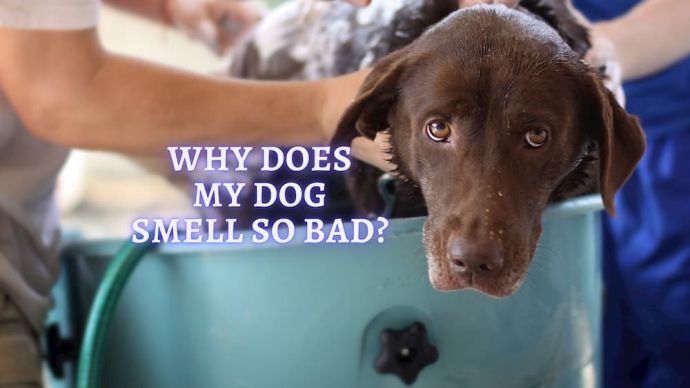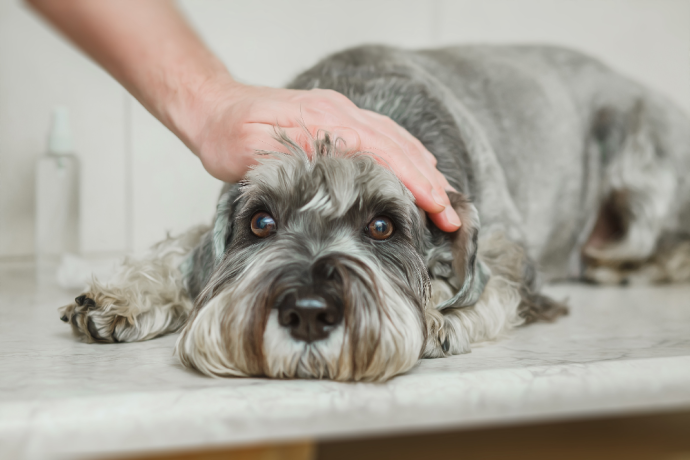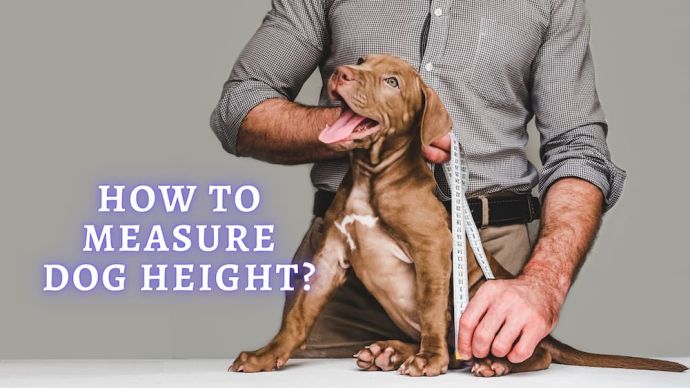Can Dogs Eat Peanuts? Are Peanuts Bad for Dogs to Have?
Written by:
Author: Carol Young
Carol has worked in specialty, emergency, mixed animal and general veterinary practices, and enjoys all aspects of veterinary medicine. Her special areas of interest include anesthesia, critical care, emergency, dentistry, internal medicine and small animal nutrition.
View all 62 articlesLearn about our editorial process and veterinary review board.
Viewed: 60
Updated on: 03/21/2023
Most dog owners agree that if dogs eat peanut butter (a popular yummy treat) they must really like it. So an obvious question would be if dogs love peanut butter, do they love peanuts just as much? And secondly, can dogs eat peanuts?
Peanuts are rich in vitamin B-6, protein, vitamin E, niacin, and healthy fats and would seem like an appropriate treat for dogs, but in some cases, it may not be the best choice for your best friend. If you’re curious about whether or not your pooch should have peanuts, there are some things you might want to know.
Risks of Feeding Your Dog Peanuts
- Too much salt and/or sugar: The good news is that raw, dry-roasted, unsalted peanuts are fairly safe for dogs as long as they don’t pose a choking hazard. Other peanuts, such as honey-roasted or salted ones have too much salt and sugar which can be harmful to your pooch if eaten in large amounts. The risks of too much salt and sugar include gastrointestinal upset, diarrhea, vomiting, and bloating. Dogs can also suffer from longer-term issues such as weight gain, diabetes, and heart disease.
- Fat content: Peanuts are packed full of protein but also contain high levels of unsaturated fat (the good kind of fat). But, if your dog binges on peanuts, the fat content can cause GI upset or possibly pancreatitis.
How Many Peanuts Can Dogs Eat?
As with any diet or food, moderation is important. If your furry friend goes bananas over peanuts, try feeding only a few at once. Also, keep in mind that dogs don’t really need peanuts as a part of their regular diet, so offer them as an occasional treat, but not every day.
If you have a small dog, such as a Chihuahua or a Shih Tzhu, only feed one or two peanuts at once so as to avoid any choking issues. If you have a larger dog such as a Great Dane, you can probably get away with feeding a small handful. But keep in mind, peanuts are small and fibrous, can be hard to chew, and can get stuck in a dog’s esophagus.
RELATED: Can You Give a Dog Tums?
Side Effects of Dogs Eating Peanuts
Peanuts are non-toxic to dogs, but they can have some side effects:
Diarrhea and vomiting: When a dog ingests a food high in fat, it can cause an upset stomach, including diarrhea and vomiting.
Choking hazard: Peanuts are very fibrous and hard, and as a result can pose a choking hazard, especially to small breeds or dogs who have difficulty chewing.
Pancreatitis: Dogs who have high-fat diets can develop a serious medical condition called pancreatitis. This condition occurs when a dog’s pancreas becomes inflamed due to the high-fat diet, and in many cases requires hospitalization and supportive care.
High Salt: We know that high-salt diets can lead to heart problems and high blood pressure, including salted peanuts. If you feed your pooch peanuts, make sure they’re unsalted.
Xylitol: Products that combine peanut butter or peanuts with other ingredients such as xylitol, can be deadly. Xylitol is a sugar substitute and is extremely toxic to dogs. Avery small amount of xylitol can cause dramatic hypoglycemia (low blood sugar) in your dog, causing potential lover failure or death. Know the signs of xylitol toxicity such as panting, disorientation, collapse, and seizures.
Allergic Reactions: Dogs can be allergic to peanuts, just like humans, and below are some signs of the allergy reactions to look for:
- Coughing
- Breathing problems
- Vomiting
- Itching
- Swelling of the face, neck, or other parts of the body
In many cases, allergic reactions can be mild, but if you are concerned, contact your veterinarian as soon as possible.
READ MORE: Can Dogs Eat Pineapple?
How to Feed a Dog Peanuts
As mentioned above, moderation is the key, so try to avoid feeding your dog more than a few peanuts at a time. You can also turn peanut time into playtime or training time. For example, reward your pooch for a sit or hand-shake with a single peanut, or place one inside an interactive toy such as a Kong and watch your dog try to extract it.
In addition to feeding peanuts by themselves, you can also use them as an ingredient in a dog biscuit or a cookie. If you do decide to do some baking for your pet, make sure all of the ingredients are safe for your pooch and don’t contain other unsafe ingredients such as chocolate or raisins.
What Foods Are Toxic to Dogs?
You should avoid giving your dog several foods, and a few of these are listed below.
- Raisins. Raisins are a popular ingredient used in baking, but unfortunately, they can cause kidney failure in dogs, especially if ingested in large amounts.
- Macadamia nuts. These nuts can be toxic to dogs, and those who have ingested these nuts can experience weakness in the back legs, vomiting, diarrhea, and a fever.
- Almonds. Almonds are also a popular ingredient in trail mix, and although they are not toxic to dogs, they are not easily digestible and can cause GI upset and even pancreatitis.
- Pine Nuts. Pine nuts are high in fat and phosphorus, and although these popular nuts are not toxic to dogs, they can cause some gastrointestinal (GI) irritation, even if eaten in small amounts.
- Pistachios. Another trail mix ingredient is pistachios. These tasty green nuts are a favorite, but they can be harmful to your dog. Pistachios can carry a mold called “Aspergillus,” and this mold produces aflatoxin (a poisonous carcinogen) that can damage your pet’s liver. ed pistachios can show signs of GI distress such as vomiting, diarrhea, and abdominal pain.
- Walnuts. Walnuts should not be fed to your dog, and in addition to GI upset and irritation, they can contain mycotoxin molds that can cause tremors and seizures.
- Pecans. Like pistachios, pecans also contain the Aspergillus mold, which can cause liver damage. Pecans can also pose a choking hazard, produce GI irritation, and cause possible intestinal blockages.
- Chocolate is toxic to dogs because it contains methylxanthine and theobromine. These elements are found in tea, coffee, and chocolate, and both stimulate the nervous and cardiovascular systems. Because of these chemicals, chocolate ingestion in large quantities can cause vomiting, liver failure, and even death in dogs.
- Xylitol. For those individuals who are watching their weight but wish to reduce their sugar intake, they may opt to put the artificial sweetener Xylitol into their trail mix. Xylitol is an artificial sweetener found in several food items such as gum and other sugar-free foods; however, Xylitol is dangerously toxic to animals. Even a tiny amount can cause serious hypoglycemia (low blood sugar), seizures, liver damage, and even death. If your dog has eaten Xylitol or has ingested food sweetened with Xylitol, that is a medical emergency, and you should contact your veterinarian immediately.
People also ask
What happens if a dog eats peanuts?
If a dog eats peanuts, it shouldn’t be a concern unless it’s a whole lot of nuts, or if they pose a choking or health hazard for a dog. It is important to avoid salted or coated with chocolate peanuts, sugar, or xylitol since these additives can be a health hazard for your pooch. Also, make sure that if your dogs like to eat peanut butter it doesn’t contain any of these additives. xylitol poisoning
How many peanuts can a dog eat per day?
The answer to this question depends on the dog. For example, a Tea Cup Poodle should only have one or maybe up to three individual peanuts, whereas an English Mastiff could handle a handful or more. Always keep in mind that peanuts contain a lot of fiber and can pose a choking hazard if a pup overdoes it.
Are salted peanuts bad for dogs?
In short, dogs don’t need to eat salted peanuts. If you feed your dog a balanced diet, there is really no need to feed peanuts, much less salted ones. However, an occasional salted peanut here and there should not pose a health hazard to your pet.
Are nuts bad for dogs?
As an owner, you should be aware that several types of nuts are toxic to dogs. For example, macadamia nuts and walnuts are very toxic to dogs, and raw cashews, almonds, and pecans should be avoided. The safe nuts include peanuts and hazelnut.
Is peanut butter bad for my dog?
As with peanuts, an occasional treat of peanut butter can be a safe and tasty treat for your pooch, however, make sure it doesn’t contain any additives that may harm your pup such as xylitol, lots of sodium, or lots of sugar. Also, keep an eye out for possible (but rare) allergic reactions such as vomiting, diarrhea, and facial swelling.
As always, if you have any questions about peanuts and your dog, and whether dogs can eat peanuts, contact your veterinarian.
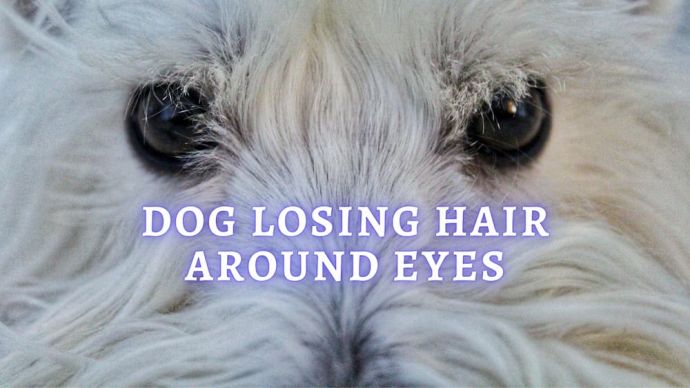 Dog Veterinary Tips Dog Losing Hair Around the Eyes: Causes, Diagnosis and Treatment (Vet Advice)
Dog Veterinary Tips Dog Losing Hair Around the Eyes: Causes, Diagnosis and Treatment (Vet Advice) - 4861
- 0
 Puppy Care How Much Water Should A Puppy Drink? Vet Advice On Puppies Daily Water Intake
Puppy Care How Much Water Should A Puppy Drink? Vet Advice On Puppies Daily Water Intake - 359
- 0
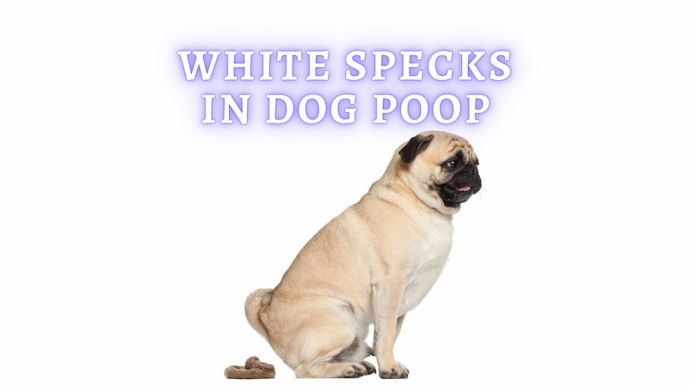 Dog Care White Specks In Dog Poop: What Are The Little White Specks In Dog Poop? (Vet Advice)
Dog Care White Specks In Dog Poop: What Are The Little White Specks In Dog Poop? (Vet Advice) - 509
- 0
 Dog Veterinary Tips Why is my Dog throwing up: Causes and Preventing (Veterinary Advice)
Dog Veterinary Tips Why is my Dog throwing up: Causes and Preventing (Veterinary Advice) - 21360
- 5
 Dog Care My Dog Keeps Scratching His Mouth: Reasons Why Your Dog Scratching Face
Dog Care My Dog Keeps Scratching His Mouth: Reasons Why Your Dog Scratching Face - 16546
- 1















